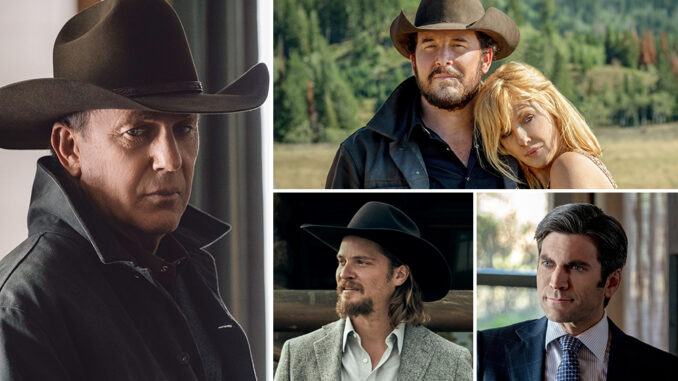
The Dust Settles: Yellowstone Season 5 and the Uncertain Legacy of the Dutton Ranch
The final season of “Yellowstone,” even before its last gunshot echoes across the Montana plains, leaves behind a complex and arguably fractured legacy. What started as a neo-western opera, a potent blend of breathtaking landscapes, family drama, and ruthless land grabs, ends not with a resounding conclusion, but with a question mark etched across the horizon. Whether the finale successfully cements the show’s place in television history, or merely leaves viewers disillusioned, hinges on how it resolves the myriad plot threads and answers the central question: what becomes of the Dutton empire?
Initially, "Yellowstone" captivated audiences with its raw portrayal of life on a sprawling ranch, a dying breed in a rapidly modernizing world. John Dutton, the patriarch played with stoic gravitas by Kevin Costner, became an anti-hero for our times, fiercely defending his family's land against developers, politicians, and even his own children. The show reveled in moral ambiguity, exploring the violent lengths to which the Duttons would go to protect their legacy. This primal narrative, coupled with stunning visuals of the Montana wilderness, resonated deeply, drawing in a vast and loyal audience. The series tapped into a deep-seated yearning for authenticity, for a simpler way of life threatened by the relentless march of progress.
However, as the seasons progressed, the narrative often veered into the realm of melodrama, occasionally sacrificing nuanced character development for shock value and plot twists. The simmering tensions within the Dutton family, initially compelling, sometimes felt artificially amplified, strained by convoluted schemes and ever-escalating betrayals. The central conflict – the fight to preserve the Yellowstone Ranch – became muddled by a proliferation of subplots, from Beth Dutton’s relentless corporate warfare to Kayce’s spiritual journey with the Broken Rock Reservation. Season 5, in particular, felt fragmented, with promising storylines left unresolved and new conflicts introduced seemingly at random.
This unevenness is a significant factor in assessing the show's legacy. Will "Yellowstone" be remembered as a groundbreaking series that redefined the western genre, or as a cautionary tale of declining narrative quality? The answer, of course, lies in the finale. If the remaining episodes manage to weave together the disparate threads, providing satisfying resolutions for the main characters and a coherent vision for the future of the ranch, the show could still redeem itself. A fitting conclusion might involve the Duttons finding a way to adapt to the changing world, perhaps by embracing sustainable practices and forging alliances with their former adversaries.
Alternatively, the finale could fall short, leaving viewers with a sense of disappointment and unfulfilled potential. Perhaps the Yellowstone Ranch will succumb to the forces of progress, its vast landscapes transformed into sprawling subdivisions and luxury resorts. This bleak ending, while undeniably tragic, could also be seen as a commentary on the inevitability of change, a harsh reminder that even the most fiercely defended legacies cannot endure forever.
Ultimately, the legacy of "Yellowstone" season 5 will depend on how it addresses the underlying themes of the series: family, land, and the enduring conflict between tradition and progress. It will be judged on its ability to deliver a satisfying conclusion to the Duttons’ saga, whether that conclusion is triumphant or tragic. Regardless of the outcome, the show has undoubtedly left its mark on popular culture, sparking conversations about the future of the American West and the enduring power of the western mythos. The dust may be settling on the Yellowstone Ranch, but the echo of its story will likely reverberate for years to come, prompting us to reflect on the price of ambition and the enduring allure of the wild.
